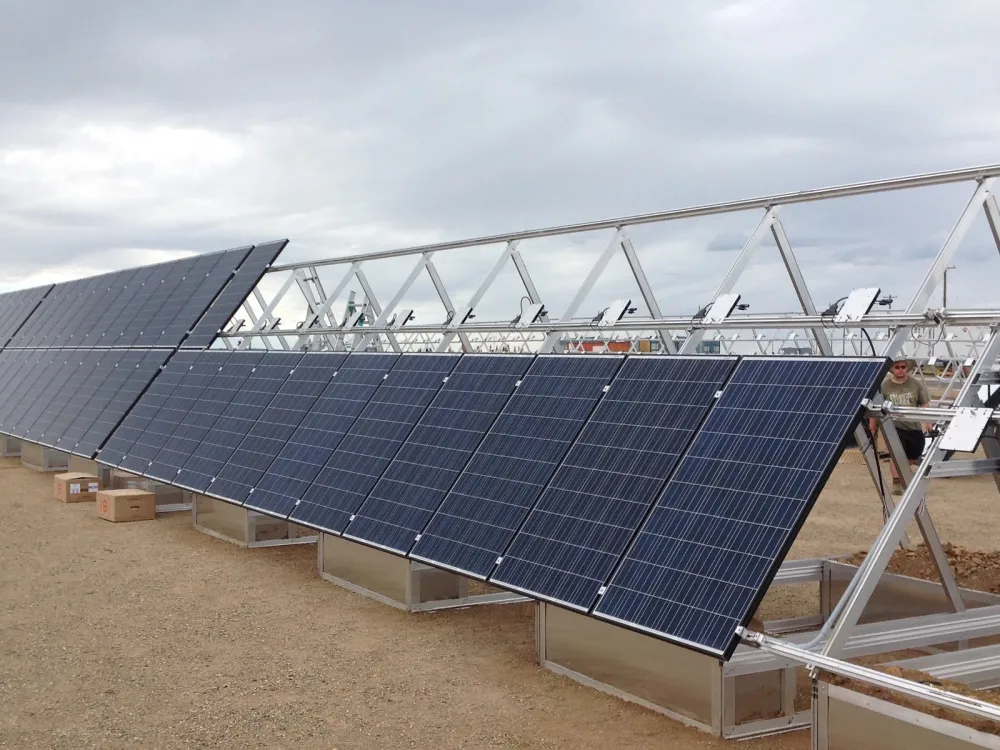VANCOUVER / MUSQUEAM, SQUAMISH & TSLEIL-WAUTUTH TERRITORIES — Remote Indigenous communities across Canada are gaining momentum in the shift away from reliance on diesel and toward clean energy sources, such as wind, hydro, solar, and bioenergy.
However, this energy transition is in many cases hindered by the uneven approach of governments, regulators, and utilities, and various policies that limit the ability of remote Indigenous communities to develop, own, and operate local clean power projects.
These are the conclusions of a new report card, Power Shift in Remote Indigenous Communities, published by the Pembina Institute. The report tracks the progress of diesel reduction and clean energy policies across provinces and territories in Canada, and at the federal level, as they apply to remote Indigenous communities.
The report lays out 10 recommendations to help governments, regulators, and utilities better enable diesel reduction, clean energy, and Indigenous-led initiatives in remote communities. Today at 1 p.m. EDT, the Pembina Institute will host a webinar to discuss the report’s findings, for media and other stakeholders.
For remote Indigenous communities, transitioning off diesel and toward clean energy can help support goals of self-determination, energy independence, economic development, community resilience, and reducing climate pollution. Navigating the changes that need to take place will require meaningful dialogue, transparency, and visionary thinking among governments, utilities, and communities — driven by Indigenous leadership and the desire of communities to be in control of their own energy future.
Quick facts
- Strong government leadership on the clean energy transition in remote Indigenous communities is being demonstrated in a few jurisdictions, including Yukon and British Columbia, and by the federal government.
- Utility innovation and transparency is most evident in Ontario, Yukon, and Quebec.
- Jurisdictions such as Alberta, the Northwest Territories, and Manitoba could provide a clearer process and improve transparency for remote Indigenous communities seeking to partner on clean energy projects.
- Canada is home to approximately 170 remote Indigenous communities, with a combined population of over 100,000.
- Over three-quarters of remote communities in Canada are Indigenous, including First Nations, Métis, and Inuit communities.
- Remote communities are found in every province and territory, with the exception of Prince Edward Island, New Brunswick, and Nova Scotia.
Quotes
“Governments across Canada should respond to Indigenous leadership and momentum on the clean energy transition in remote communities by advancing policies that enable equitable access to diesel reduction opportunities.”
— Dave Lovekin, director of renewables in remote communities, Pembina Institute
“Advancing clean energy partnerships with Indigenous communities can help governments and utilities across Canada honour their commitments to reconciliation, as well as contribute to climate and energy goals.”
— Dylan Heerema, senior analyst, Pembina Institute
[30]
Download the report card: pembina.org/pub/indigenous-power-shift
Join the webinar: pembina.org/PowerShift
Contact
Kelly O’Connor
Associate communications director, Pembina Institute
416-220-8804
Background
Backgrounder: The True Cost of Energy in Remote Communities
Report: Renewable Energy Partnerships and Project Economics
Blog: The future of the electric utility in Canada’s remote communities
More publications: Renewables in Remote Communities
About the Pembina Institute
The Pembina Institute is a non-profit think-tank that advocates for strong, effective policies to support Canada’s clean energy transition. We have offices in Vancouver, Calgary, Edmonton, Toronto, and Ottawa. Learn more: www.pembina.org




